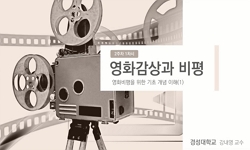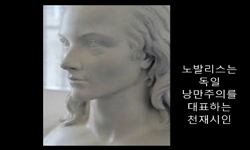This study aims to propose the theoretical concept of educational criticism for qualitative researchers and present practical process of qualitative research, based on the methodology of educational criticism. The concept of educational criticism is c...
http://chineseinput.net/에서 pinyin(병음)방식으로 중국어를 변환할 수 있습니다.
변환된 중국어를 복사하여 사용하시면 됩니다.
- 中文 을 입력하시려면 zhongwen을 입력하시고 space를누르시면됩니다.
- 北京 을 입력하시려면 beijing을 입력하시고 space를 누르시면 됩니다.
https://www.riss.kr/link?id=A102134326
- 저자
- 발행기관
- 학술지명
- 권호사항
-
발행연도
2016
-
작성언어
Korean
- 주제어
-
KDC
300
-
자료형태
학술저널
- 발행기관 URL
-
수록면
1-29(29쪽)
-
KCI 피인용횟수
2
- 제공처
- 소장기관
-
0
상세조회 -
0
다운로드
부가정보
다국어 초록 (Multilingual Abstract)
The process of qualitative research, based on educational criticism can be explained as follows: First, it defines research problems. As for the necessity of research, it can use episodes, while the type of research problems can be stated in the form of description,understanding and depiction. Moreover, it is necessary to present the preliminary research results in parallel with the importance of research and the limitations of research. Second, it explains research methods. It is required to describe the research participants and spot where the event occurred in detail, as they are the most important factors to form the structure of a research. Moreover, it is vital to make a full explanation about theoretical knowledge of connoisseurship, constituting a core concept of educational criticism. As for the research process, the researcher should choose the best way to explain the research. At the last stage, it is important to clarify how the problems of research ethics have been solved. Third, data is collected and analyzed. In educational criticism methodology, data collection takes place in a circular and concurrent way. So as to ensure the research validity, educational criticism applies the methods of structure corroboration, consensual validation and referential adequacy. Finally, research results are laid out. The results are also laid out in paper writing. When the research results are described, it is essential to clearly mention, from whom the paper is originated and apply the appropriate writing strategy.
This study aims to propose the theoretical concept of educational criticism for qualitative researchers and present practical process of qualitative research, based on the methodology of educational criticism. The concept of educational criticism is composed of two elements; criticism and connoisseurship. Criticism refers to a task in which a researcher evaluates a phenomenon, based on certain grounds, by observing a scene or a site as it is. In criticism, there is no final, conclusive or perfect definition. Depending on the context of research, the result of criticism can always be different. On the other hand, connoisseurship is dependent on intellectual capacity of a researcher and it is a capability of carefully analyzing certain event and phenomenon that is likely to be overlooked, to distinguish various characteristics out of them. According to the concept of connoisseurship, it is important to understand and criticize the fact artistically, based on sharp discernment in conjunction with rational judgement and scientific analysis on a certain scene or a site. Furthermore, it is essential to realize ourselves in the process of understanding our world of life. Educational criticism combines both concepts and is characterized as a research methodology of which a variety of phenomena happening in the field are described and analyzed.
The process of qualitative research, based on educational criticism can be explained as follows: First, it defines research problems. As for the necessity of research, it can use episodes, while the type of research problems can be stated in the form of description,understanding and depiction. Moreover, it is necessary to present the preliminary research results in parallel with the importance of research and the limitations of research. Second, it explains research methods. It is required to describe the research participants and spot where the event occurred in detail, as they are the most important factors to form the structure of a research. Moreover, it is vital to make a full explanation about theoretical knowledge of connoisseurship, constituting a core concept of educational criticism. As for the research process, the researcher should choose the best way to explain the research. At the last stage, it is important to clarify how the problems of research ethics have been solved. Third, data is collected and analyzed. In educational criticism methodology, data collection takes place in a circular and concurrent way. So as to ensure the research validity, educational criticism applies the methods of structure corroboration, consensual validation and referential adequacy. Finally, research results are laid out. The results are also laid out in paper writing. When the research results are described, it is essential to clearly mention, from whom the paper is originated and apply the appropriate writing strategy.
국문 초록 (Abstract)
본 연구에서는 질적연구방법의 주요한 방법 중 하나인 교육비평방법론을 소개하고 이론에서 중요하게 생각되는 개념들의 의미를 다시 되새김과 동시에 심화시키고자 한다. 이를 통해 질적...
본 연구에서는 질적연구방법의 주요한 방법 중 하나인 교육비평방법론을 소개하고 이론에서 중요하게 생각되는 개념들의 의미를 다시 되새김과 동시에 심화시키고자 한다. 이를 통해 질적연구자들에게 교육비평방법론의 이론과 실제에 대해 논의하려 한다. 한편으로는 교육비평방법론을 적용한 질적연구의 절차를 탐색할 것이다. 이를 토대로 질적연구의 과정을 재구성하고 교육비평을 활용하고자하는 질적연구자들에게 지침을 제공하고자 한다. 우리나라의 경우 아직도 교육비평과 감식안 개념은 생소하고 새로운 것으로 인식되고 있다. 교육비평에 대한 이론적 설명은 많이 시도되었지만 구체적으로 현장작업과 관련하여 무엇을 어떻게 해야 할 것인지에 대한 방법적 과정에 대한 상세한 소개는 없는 실정이다. 따라서 본 연구를 통하여 우리나라에 아직 구체화되지 않고 있는 교육비평방법론의 실제적 적용의 가능성을 더욱 확장시키고자 한다. 그리하여 조직, 기관, 집단, 프로그램의 과정 연구에서 교육비평방법론을 활용한 질적연구가 더욱 널리 확산되기를 기대한다.
목차 (Table of Contents)
- I. 서론
- Ⅱ. 교육비평방법론의 개념적 이해
- 1. 비평
- 2. 감식안
- 3. 교육비평
- I. 서론
- Ⅱ. 교육비평방법론의 개념적 이해
- 1. 비평
- 2. 감식안
- 3. 교육비평
- Ⅲ. 교육비평방법론을 활용한 질적연구의 절차
- 1. 연구문제 진술하기
- 2. 연구방법 설명하기
- 3. 자료수집 및 분석하기
- 4. 연구결과 표현하기
- Ⅳ. 결론
참고문헌 (Reference)
1 김영천, "한 여름 밤의 꿈: 제7차 교육과정 환상과 추락의 내러티브" 아카데미프레스 2009
2 조재성, "학교의 영재들은 어디로 갔을까?: 아인슈타인 영재학원의 쿠레레(currere)에 관한 질적 사례 연구" 진주교육대학교 2015
3 강우정, "초등미술에서 공동체의 의미 만들기 학습 실행에 대한 교육비평 연구" 홍익대학교 교육대학원 2013
4 오영범, "질적자료분석: 파랑새 2.0 소프트웨어" 아카데미프레스 2016
5 허창수, "젠더놀이(gender play) : 초등학교 학생들의 이분법적 젠더 정체성 경계 넘기" 한국열린교육학회 14 (14): 119-147, 2006
6 정민선, "아이스너(Eisner)의 교육적 감식안에 의한 초등 미술영재수업에 대한 교육비평" 홍익대학교 교육대학원 2012
7 이혁규, "수업 비평의 방법과 활용 : 자전적 경험을 중심으로" 한국열린교육학회 18 (18): 271-300, 2010
8 김우종, "비평문학론" 범우사 1984
9 김영천, "별이 빛나는 밤2: 한국 교사의 삶과 그들의 세계" 문음사 2005
10 김영천, "별이 빛나는 밤1: 한국 교사의 삶과 그들의 세계" 문음사 2005
1 김영천, "한 여름 밤의 꿈: 제7차 교육과정 환상과 추락의 내러티브" 아카데미프레스 2009
2 조재성, "학교의 영재들은 어디로 갔을까?: 아인슈타인 영재학원의 쿠레레(currere)에 관한 질적 사례 연구" 진주교육대학교 2015
3 강우정, "초등미술에서 공동체의 의미 만들기 학습 실행에 대한 교육비평 연구" 홍익대학교 교육대학원 2013
4 오영범, "질적자료분석: 파랑새 2.0 소프트웨어" 아카데미프레스 2016
5 허창수, "젠더놀이(gender play) : 초등학교 학생들의 이분법적 젠더 정체성 경계 넘기" 한국열린교육학회 14 (14): 119-147, 2006
6 정민선, "아이스너(Eisner)의 교육적 감식안에 의한 초등 미술영재수업에 대한 교육비평" 홍익대학교 교육대학원 2012
7 이혁규, "수업 비평의 방법과 활용 : 자전적 경험을 중심으로" 한국열린교육학회 18 (18): 271-300, 2010
8 김우종, "비평문학론" 범우사 1984
9 김영천, "별이 빛나는 밤2: 한국 교사의 삶과 그들의 세계" 문음사 2005
10 김영천, "별이 빛나는 밤1: 한국 교사의 삶과 그들의 세계" 문음사 2005
11 장백일, "문학 비평 원론" 국민대학교 출판부 1995
12 김경희, "대학생들의 성, 사랑, 결혼에 관한 내러티브 탐구 - 수업 중 저널쓰기를 기초하여-" 한국가족관계학회 15 (15): 51-71, 2011
13 염지숙, "내러티브 탐구(Narrative Inquiry)를 통한 유아 세계 이해" 2 (2): 57-82, 1999
14 한승희, "교육학의 새로운 지표로서 내러티브" 38 (38): 259-282, 2000
15 박승배, "교육평설: 엘리어트 아이즈너의 질적연구방법론" 교육과학사 2013
16 김명희, "교육과정 연구 방법론으로서의 교육 비평:그 이론과 실제" 한국교육과정학회 24 (24): 97-120, 2006
17 주정흔, "‘즐거운 수업’에 대한 교사의 인식과 실천에 관한 내러티브 탐구" 한국교육인류학회 13 (13): 71-102, 2010
18 Eisner, E. W., "The enlightened eye: Qualitative inquiry and the enhancement of educational practice" Pearson 1991
19 Eisner, E. W., "The educational imagination: On the design and evaluation of educational programs" Macmillan 2002
20 Eisner, E. W., "The educational imagination" Macmillan 1985
21 Ecker, D., "The artistic process as qualitative problem-solving" 21 (21): 283-290, 1963
22 Štrajn, D., "The PISA syndrome: Can we imagine education without comparative testing?" 25 (25): 13-27, 2014
23 Kincheloe, J., "Teachers as researchers: Qualitative inquiry as a path to empowerment" The Falmer Press 1991
24 Patton, M. Q., "Qualitative research & evaluation methods" Sage 2015
25 Rosenthal, R., "Pygmalion in the classroom" Irvington 1986
26 Barone, T. E., "Literature, the disciplines, and the lives of elementary school children" 72 (72): 30-38, 1995
27 Kim, K., "Learning from each other: Creativity in East Asian and American education" 17 (17): 337-347, 2005
28 Short, E. C., "Forms of curriculum inquiry" Suny Press 1991
29 Vallance, E., "Encyclopedia of curriculum studies" Sage 45-48, 2010
30 김양숙, "Eisner 교육비평에 함의된 수업평가의 성격" 한국교원대학교 대학원 2006
31 Flinders, D. J., "Educational criticism as a form of qualitative inquiry" 28 (28): 341-357, 1994
32 Eisner, E. W., "Educational connoisseurship and educational criticism: Their forms and functions in educational evaluation" 10 (10): 135-150, 1976
33 West, C., "Doing gender" 1 (1): 125-150, 1987
34 Evans, E. J., "Categorical alternatives: An educational criticism study" 9 (9): 15-35, 2015
35 Darling-hammond, L., "Authentic assessment in action: Studies of schools and students at work" Teachers College Press 1995
36 Hough, G., "An essay on criticism" Duckworth 1966
동일학술지(권/호) 다른 논문
-
- 한국질적탐구학회
- 최의창
- 2016
-
- 한국질적탐구학회
- 정종철
- 2016
-
르네 마그리트의 유년기 외상경험과 예술을 통한 치유과정 연구
- 한국질적탐구학회
- 김선주
- 2016
-
- 한국질적탐구학회
- David R. Goodwin
- 2016




 RISS
RISS 스콜라
스콜라









